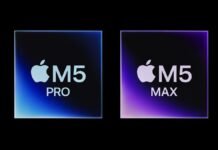Save StorySave this storySave StorySave this story
Allan Thygesen, the CEO of Docusign, was not particularly concerned when he saw the news last week that OpenAI had created an internal tool called DocuGPT. He might have preferred that OpenAI choose a different name for its contracting tool. But still, he thought, DocuGPT barely scratched the surface of what Docusign can do. “This is a fairly obvious demo, and it's well-known that these things are possible, and it's not really material to our story or competitive position," he recalls thinking when he saw the announcement.
Docusign’s investors, however, did not appear to agree. The company’s stock dropped 12 percent following the news. It wasn’t the only software firm to take a hit. In addition to DocuGPT, OpenAI detailed a number of other custom AI programs the company uses, including an AI sales assistant, a customer feedback bot, and an AI support agent. HubSpot shares fell 50 points following the news, while Salesforce saw a smaller decline.
The episode underscores OpenAI’s power in the current market. The company was showcasing fairly basic internal tools built on its public API, but its blog post was interpreted by some as a declaration of war against enterprise software providers. For leaders like Thygesen, the episode suggests the challenge isn’t just keeping up with advances in artificial intelligence, but also staying ahead of the narrative.
“This is a market where everything is driven by narratives right now,” says Rishi Jaluria, an analyst at RBC Capital Markets who focuses on tech stocks. “The fundamentals are kind of getting overlooked.”
Docusign’s fundamentals, according to Thygesen, are stronger than ever. While the company is known primarily as a platform for signing legally binding contracts, it recently launched an AI-powered platform that helps customers manage every aspect of the contract process, from creating documents to verifying the identities of signatories. The company uses a mix of in-house tools and AI models from third-party firms, including OpenAI.
Docusign’s stock price has been volatile this year, but Thygesen assures me the future is bright. “I'm feeling very bullish about the future of Docusign and what AI in particular has done for us,” he says.
Salesforce also brushed off concerns about needing to compete with OpenAI. "It isn't us versus them, it's a partnership," says Valmik Desai, senior director on the investor relations team at Salesforce. He added: "LLMs are inherently non-deterministic—they can be hard to control without guardrails, without structure, for complex use cases. Partnering with Salesforce makes a lot of sense” for enterprise customers.
Of course, the frothy narrative surrounding OpenAI can also have a positive effect on companies it works with. After Altman mentioned Figma at OpenAI’s 2025 developer conference in San Francisco on Monday, shares of the design company popped 7 percent. “When someone’s using ChatGPT, you’ll be able to find an app by asking for it by name,” Altman said. “For example, you could sketch out a product flow for ChatGPT and then say, ‘Figma, turn this sketch into a workable diagram.’ The Figma app will take over, respond, and complete the action.”
This isn’t the first time an eyebrow-raising software announcement has spooked investors. Jaluria remembers when Salesforce debuted its own data visualization tool, which some market watchers thought signaled the end for Tableau. A few years later, however, Salesforce ended up acquiring Tableau for $15.7 billion in an all-stock deal.
In many cases, market shifts prove to be only temporary, and investors start to relax once it becomes clear that the current popular wisdom isn’t translating into meaningful revenue or cost savings for customers. “The good news is that good numbers cure all manners of sin, and all it takes is just a couple quarters to kind of disprove those sorts of narrative,” Jaluria says.
This is an edition of the Model Behavior newsletter. Read previous newsletters here.

































